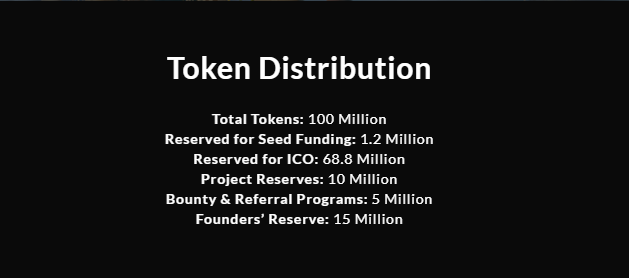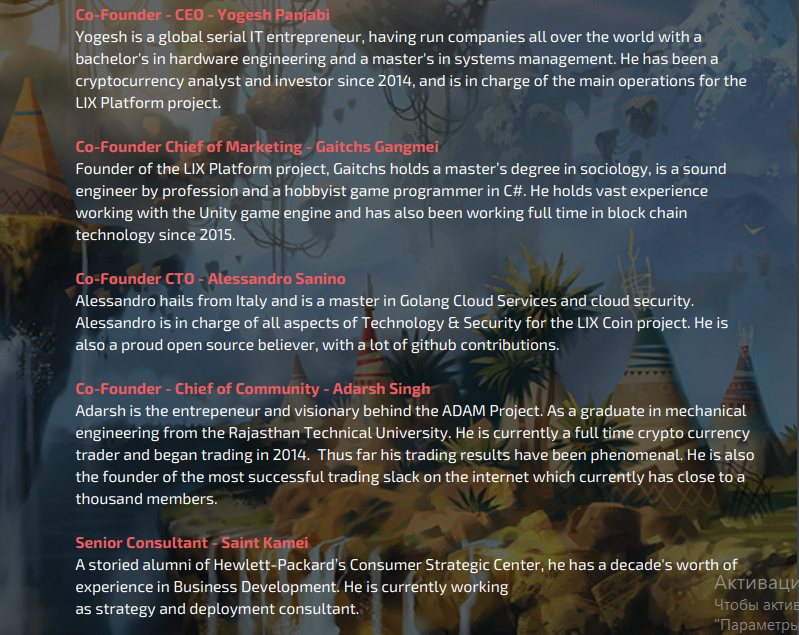LIXCOIN — Provides Infrastructure And Game Economics
THe LIX crowdfunding platform for games was conceived in early 2016 to provide game developers and gamers a secure, convenient, and decentralized platform and economy. Focused on innovative ideas, the platform will work to help game developers turn their gaming concepts into reality. As avid gamers ourselves, we understand how AAA studios are beginning to lose their monopoly hold on the industry. Independent developers with great gaming concepts and breakthrough ideas are generally held back only due to a lack of funding and support. LIX’s main will be to democratize the gaming industry by helping independent developers break free from these constraints, thereby ensuring that the gaming industry can reach the diversity and entertainment value expected of the digital future.
Open Economy and Decentralization
Players will have the capacity to recover the amusement resources in a decentralized market and through the stock handbag as their own diversion thing will be related with resources in blockchain. Not at all like some genuine economy recreations where the money is in the amusement can not be spent outside the amusement, LIX will permit this through the usage of a trade stage where diversion money and resources can be exchanged with any player outside the Live condition diversion.
The Gaming Market
A quick overview of the largest online transactions for gaming content includes $ 38,000 for Purchase characters in DOTA 2 (online fighting games), and the purchase of a $ 635,000 nightclub property at Entropia Universe. Currently, these game assets are made in-game and then traded through complex and highly unreliable ad hoc trading systems that operate through forums and private chats. This stopgap system is prone to fraud and exploitation, but still able to achieve very fast currency trading, special items, and user accounts. Some games, such as EVE Online, are so multi-faceted and complex that developers use full time economists to ensure the game stays balanced.
A quick overview of the largest online transactions for gaming content includes $ 38,000 for Purchase characters in DOTA 2 (online fighting games), and the purchase of a $ 635,000 nightclub property at Entropia Universe. Currently, these game assets are made in-game and then traded through complex and highly unreliable ad hoc trading systems that operate through forums and private chats. This stopgap system is prone to fraud and exploitation, but still able to achieve very fast currency trading, special items, and user accounts. Some games, such as EVE Online, are so multi-faceted and complex that developers use full time economists to ensure the game stays balanced.
- Notice casual non-gaming investors:
From a traditional investment perspective, investing in asset game development may seem like investing in vaporware. However, the reality is there is real money to be made in the creation, maintenance and sale of asset games, and history has shown games that drive user-generated content Much longer lives in this fast-moving market. - Exchange Wallet
Players will be able to swap weapons in games, coins, goods, collections, custom leather, and modifications and other items in a decentralized market and through exchange wallets. The game item itself will be an asset in the blocks. They serve as a standard asset in the block chain, with specific ones
The value of the in-game representation as a game or currency asset will be easy to trade on the stock of the wallet without the need for third-party exchange of services. LIX aspires to allow players to exchange game items outside the game environment and reality.
This will create an additional revenue stream for each type of content creator that participates in the gaming industry.
Specification
Operating the Leased Proof-Of-Stake (LPOS) algorithm, the LIX network will be secured by a distributed node network, as well as the user’s wallet. Caused by
Operating the Leased Proof-Of-Stake (LPOS) algorithm, the LIX network will be secured by a distributed node network, as well as the user’s wallet. Caused by
The unique nature of the network, will allow game developers to do token or assets that also operate based on Proof-of-Stake (POS), possible inflation policies that may be required in larger ecosystem games, such as those on the Eve Online or Second Life scale.
Protocol
From a technological perspective, LIX is based on the Waves LPOS. — Fixed supply: In-game items or rare collectible items. — Renewable supply: Consumable items like foods and resources. — Fee to issue assets: At launch, 2 LIX coins. — Assets supply: Fixed and unfixed. — Assets data: Hash storage, memo ID, and text data.






